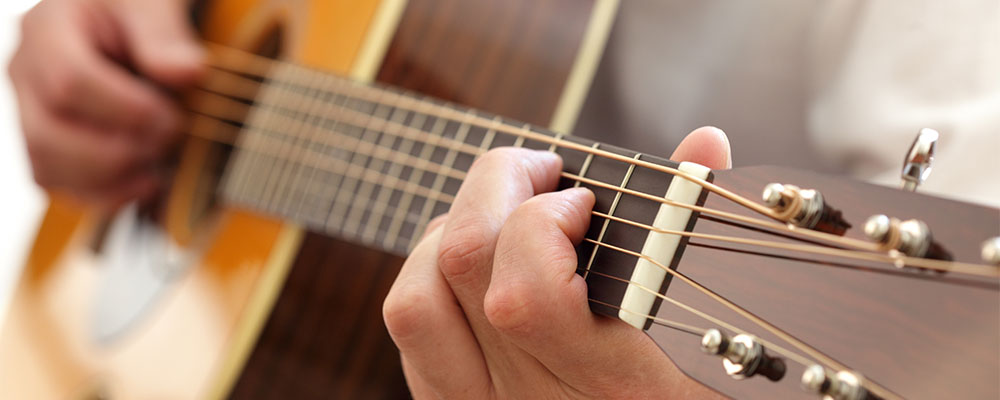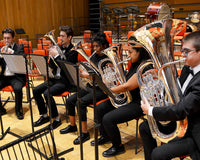When learning the guitar, there are a lot of different options to choose from and it’s hard to pin down the best way to start off. Whether you choose an acoustic or electric guitar, all of them are viable to learn on.
Acoustic Guitars
Acoustic Guitars are great for beginners as all you need is the guitar. Any extras are purely optional. Most acoustic guitars will be suitable to learn on, and will fulfill the needs of most players.

Between the three types of guitars that are most commonly played, the standard acoustic is probably the hardest to play. This is because the string tension is often quite high on an acoustic guitar. They are designed to project as much volume as possible without an amplifier. Due to this, they are often fitted with thicker strings. This causes more tension which makes it harder on your fingers. If you bought an acoustic guitar and found it too tough, you can change to a
lighter gauge of string.
Classical Guitars
Classical Guitars, while technically acoustic instruments, are slightly different to regular acoustic guitars. These guitars have
nylon strings which greatly reduce the tension in the strings. While being designed to adhere to a traditional design, and being ideal for classical music, they are still great for beginners.

As lots of players start out on classical guitars, many manufacturers have run with this and produced them in
smaller sizes. These smaller models make the guitar accessible for
players as young as 3 years old.
Electric Guitars
Electric Guitars fit somewhere in-between Acoustic and Classical in terms of string tension. Often fitted with
lighter strings to necessitate things like string bending. Electric guitars do need an
amplifier to reach the same volume as the previous options. They also tend to have thinner necks and smaller bodies, so anyone with a smaller frame or hands will find them a bit easier.

Which is best?
When comparing acoustic or electric guitar, there are no right or wrong answers. All options are suitable for beginners and won’t hamper any future playing. Personally, I started on an electric and moved forward onto both classical and acoustic guitars dependent on what I require.
Not everyone will use a
classical guitar in the long run, unless an interest in classical, bossa nova or some jazz is present. But they are ideal to get to grips with the instrument without worrying about building callouses.
Acoustic guitars are good all-rounders, but, as previously mentioned, cause a bit more of an uphill battle due to the tension. If you are happy to persevere until your fingers have strengthened, the acoustic is a great option.
Electric guitars are best suited for someone who can see themselves playing styles more suited to the electric guitar. Or someone who is looking forward to performing or recording.
 Between the three types of guitars that are most commonly played, the standard acoustic is probably the hardest to play. This is because the string tension is often quite high on an acoustic guitar. They are designed to project as much volume as possible without an amplifier. Due to this, they are often fitted with thicker strings. This causes more tension which makes it harder on your fingers. If you bought an acoustic guitar and found it too tough, you can change to a lighter gauge of string.
Between the three types of guitars that are most commonly played, the standard acoustic is probably the hardest to play. This is because the string tension is often quite high on an acoustic guitar. They are designed to project as much volume as possible without an amplifier. Due to this, they are often fitted with thicker strings. This causes more tension which makes it harder on your fingers. If you bought an acoustic guitar and found it too tough, you can change to a lighter gauge of string.
 As lots of players start out on classical guitars, many manufacturers have run with this and produced them in smaller sizes. These smaller models make the guitar accessible for players as young as 3 years old.
As lots of players start out on classical guitars, many manufacturers have run with this and produced them in smaller sizes. These smaller models make the guitar accessible for players as young as 3 years old.
















